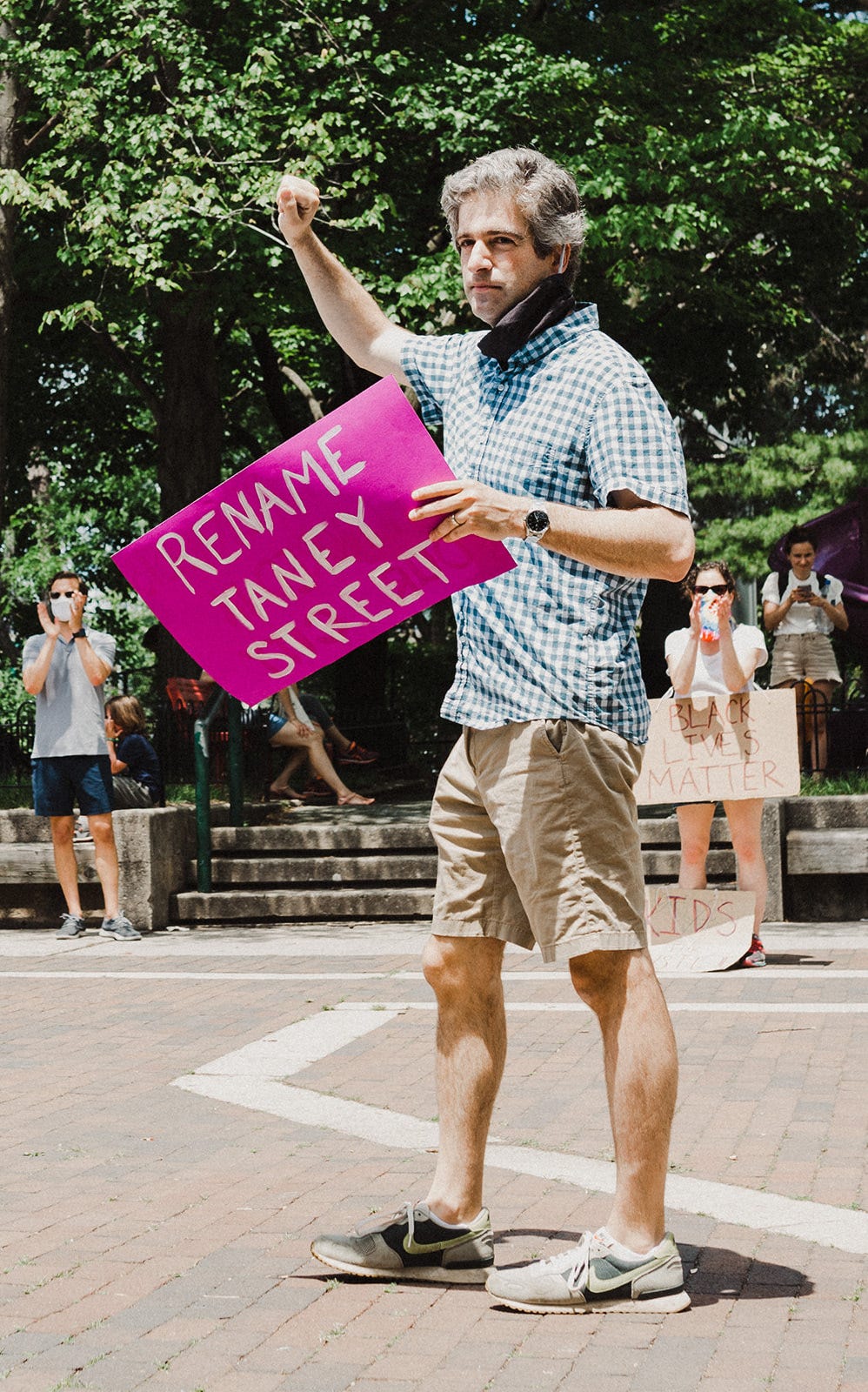Fitler Square Finds a Champion in Ben Keys
The Wharton professor serves as the president of the Fitler Square Neighborhood Association
By Jensen Toussaint

When Ben Keys traded Chicago's skyline for Philadelphia's historic streets in 2016, little did the city know they were welcoming a changemaker.
The Chicago native moved to Philadelphia in 2016 after accepting “a dream job” to teach at the Wharton School at the University of Pennsylvania, where he is a real estate and finance professor.
When he’s not teaching, Keys is heavily active in the Fitler Square community.
One way is through his work with the Fitler Square Neighborhood Association (FSNA), a registered community organization that serves the needs of Philadelphia’s Fitler Square neighborhood.
Keys has grown his involvement with the organization over the years, from volunteer to board member to now president.
Founded in 2018, the FSNA consists of a dedicated group of neighborhood volunteers seeking to improve and unify the Fitler Square community.
Uniting for Safety
“It really grew out of a goal of solving a problem,” said Keys during an interview.
The problem was that there was no stop sign on Lombard Street, which resulted in traffic accidents becoming a regular occurrence.
Community members reached out to the Streets Department and other city groups, urging the City to expedite the installation of safety measures at the intersection.
“It took a significant amount of shouting among the neighbors to finally move the city to get that done, and I think it was a recognition that the bureaucratic wheels in the city can move quite slowly, unless you know how to grease them,” Keys said.
Once that first problem was resolved, neighborhood volunteers strengthened its efforts to collaborate and find further ways to improve the community.
Fitler Square Trash
Its top three priorities are to reimagine how public spaces are used, improve public safety, and promote public health.
For example, the FSNA has had conversations with the Philadelphia Sanitation Department to discuss issues surrounding trash in the neighborhood, as well as beautification efforts.
To tackle the trash problem, the FSNA worked with the Center City Residents’ Association (CCRA) to place 12 new trash cans around Fitler Square.
“We piloted a trash can project over the summer. We've collected a lot of data and survey feedback about how that's gone,” said Keys. “We had a Zoom meeting of our association, where we heard feedback from neighbors.”
During the pilot, the trash cans quickly overflowed. This confirmed the necessity of the initiative but also indicated that refinements were essential for its sustained success.
The neighborhood associations are working with Councilor Kenyatta Johnson on legislation that will transition the pilot program into a permanent fixture. This future iteration will incorporate insights gained from the pilot.
In the coming weeks, The Fitler Focus will publish a deep dive on the Fitler Square trash cans project.
The formation of the FSNA has been crucial in helping neighborhood residents voice their concerns for this and other issues. “It gave a more formal standing to a group of neighbors to let their voices be heard … and foster a sense of community in the neighborhood,” said Keys.
Uniting for a Common Voice
While great progress has been made since the FSNA’s formation, challenges have still persisted, one of which has been getting more neighbors engaged.
“Fitler Square has an interesting mix of residents who have been there a very, very long time, and then other residents who are much more recent arrivals to the neighborhood,” said Keys.
This dynamic has, in part, created a sense of division. However, FSNA’s Board and other volunteers have dedicated themselves to being “a loudspeaker” that can effectively communicate the concerns of the community.
A key component in that effort is getting the City government’s involvement, which has been another challenge.
To address this challenge, FSNA often collaborates with other RCOs, such as the Center City Resident Association and the South of South Neighborhood Association (SOSNA) to broaden its reach both within the community, and beyond.
“It was kind of a recognition that there are a number of volunteer groups trying to make the neighborhood a better place. We should be coordinating our efforts to make sure that we're not duplicating the work that we're doing, and also amplifying our calls to share activities and events and volunteer opportunities in the neighborhood,” said Keys of the collaboration.
Taney Street
One of Keys' biggest efforts has been spearheading the fight to rename Taney Street. According to Keys, the street is named after Roger B. Taney, the former Supreme Court Justice who ruled in the Dred Scott case, declaring that African Americans could not be considered U.S. citizens and that the Congress could not prohibit slavery.
The Fitler Focus previously wrote in detail about the struggle to rename Taney Street.
When Keys moved to the neighborhood, “that raised [his] eyebrows immediately upon searching for the house, let alone moving into it” said Keys.
As a result, Keys and a group of other community members came together to co-found the Rename Taney Coalition in 2020.
“I think what Taney did and wrote was completely abhorrent … in terms of using the highest office in the land, in terms of the legal system, the Supreme Court, to strip people of their rights,” Keys said.
The effort to rename Taney Street is ongoing, as the Coalition continues to get the attention of City Council.
Through his community work, Keys has learned that it can be challenging to get the majority of the community to participate and really be engaged in efforts to improve their neighborhood.
However, along with a group of other dedicated neighbors, Keys is set on taking small steps each day to make these incremental positive changes.
“It’s really a group effort… these things only work when there’s a chorus of voices that are asking for change and looking for ways to improve their neighborhood,” he concluded.


What became of the Friends of Fitler Square group?